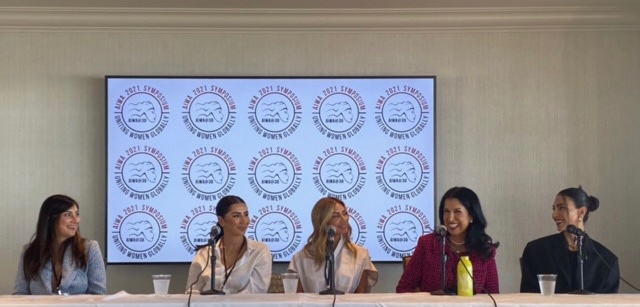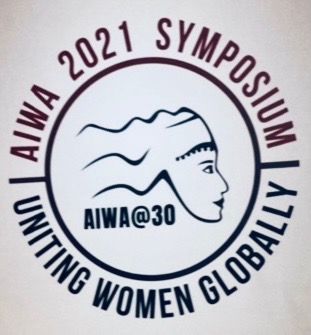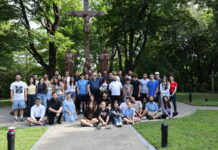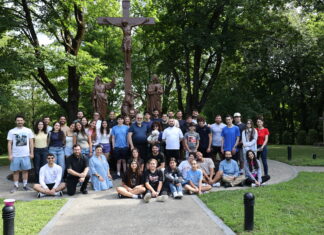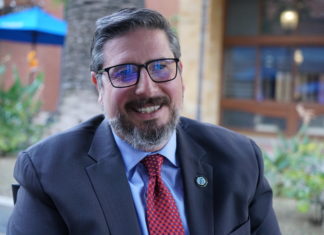NEWPORT BEACH, Calif. – Keynote speaker Nadia Owusu’s words, “I am a person who has a home in a community, a beautiful place to be. It took a long time to get here,” resonate with the Armenian International Women’s Association (AIWA)’s mission of “connecting, inspiring and empowering Armenian women to bring about positive change in their lives and their communities.” Owusu carries “the trauma of two struggling histories in my body.” “Multiplicity is at the core of who I am,” says the half-Armenian, half-Ghanaian author of the award-winning memoir Aftershocks, where she grapples with her own family history and the larger forces that shape our private lives, “to come out of the darkness of my life.” The title of the memoir refers to the 1988 earthquake in Armenia, but it also evokes the “aftershocks” of Owusu’s own life which was shaped by the absence of her Armenian mother.
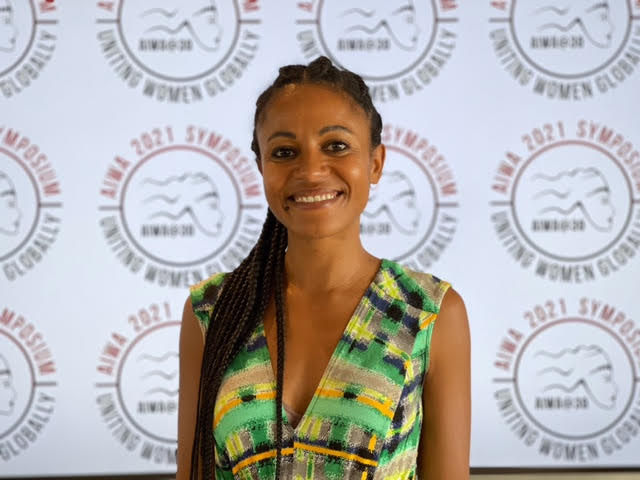
AIWA’s 30th anniversary “Uniting Women Globally” symposium at the Balboa Bay Resort in Newport Beach, CA, on October 2, 2021, a hybrid of in-person and online sessions, was a day of celebration. A lineup of highly educated, intelligent and articulate women, organized into three panels — Women in Technology, Armenian Women Influencers and Women Affecting Change, were determined to change the world, and they genuinely believed they could do it. Nothing would hinder their determination to make a difference in the lives of Armenian women; more specifically, in the lives of young Armenian women. They were all eager to create opportunities and to provide guidance. Their passion and joy for their self-assigned task was palpable. Their advice to young Armenian women preparing to start a career was clear and simple: “Be passionate about what you do. Surround yourselves with people you enjoy working with.”
Positivity was in the air. Machines and robots, perceived by many as a threat to a vulnerable population, will “simply take the boring stuff out of the way,” they joked. Nothing could replace human connectivity. Even Covid was given a positive twist. The panelists argued that the pandemic helped erase the work/home boundary and shifted the focus from “schedule” to “output,” thereby giving women the flexibility they needed to balance their careers with their domestic responsibilities. Having known the blessings of moving away from the meetings and the pennies, these women are now fighting to continue to work from home. Many have been successful.
The appeal to “the human side of things” coincided with the focus on the so-called “feminine” qualities of leading through compassion, empathy and encouragement, concepts that are becoming more and more alien in our machine-controlled age. Indeed, the panelists had much praise for one another and made no attempt to showcase themselves. The concept of “It takes a village” was very much alive. Most encouraging was their willingness to explore that other, that less tangible instinctual realm, while remaining firmly rooted in their outer contexts. Providing an alternative to the “facts” of the workplace could very well be the key to transforming the world, their ultimate goal.
The expectations of the symposium are not naive or quixotic. Even as they fight it, these women are ready to take advantage of modern technology. They recognize, with the ancient Chinese philosopher Lao-Tzu, that “to lead you have to follow.” Because they know that “one cannot fight social media,” for example, they inspire their children to “adapt while being yourself.” The goal is to boost the children’s self-confidence, not do what’s popular on social media.
Armenia was very much part of the conversation. Whatever their expertise, the panelists always drew awareness to Armenia. They sincerely believed in “the potential of Artsakh and of Armenia.” “There are amazing talents in Armenia,” they never ceased to remind us. The “Women in Technology” panel proclaimed Armenia “a major technological hub.” The beautifully attired and made up “Armenian Women Influencers,” on the other hand, were determined to make Armenia dominant in the fashion industry by promoting luxury and contemporary Armenian designers. Their excitement for the three words “Made in Armenia” was all too visible. All were in agreement. Armenia was “beautiful,” “fulfilling.” “It gives me so much purpose.”
